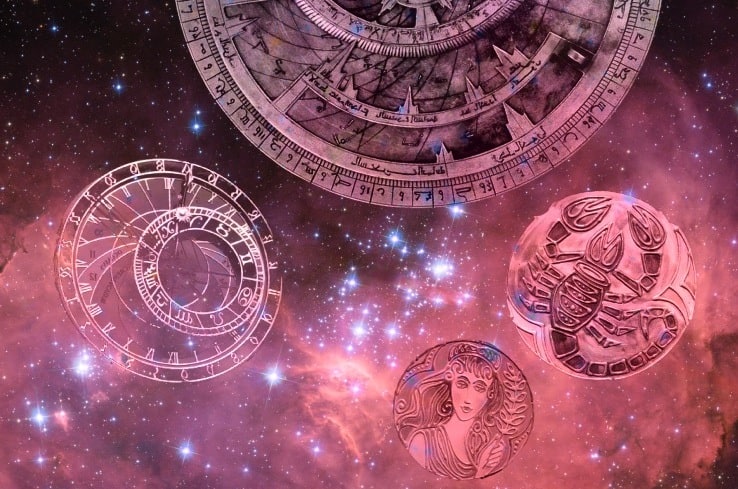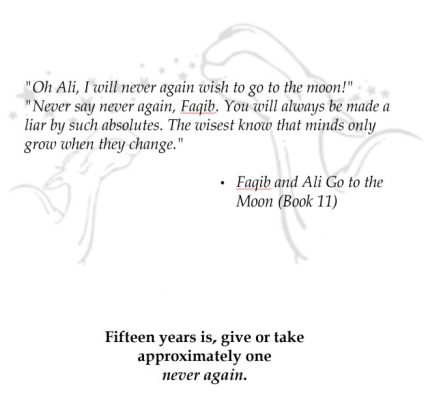Number Five in an ongoing series of articles about the historical sources, underpinnings and concepts behind Dead Air
From Avignon to Prague, the magi of the Greater Alps carefully observe the astrological relationships between the 12 signs of the zodiac, and many Order members seek to regulate their lives, their magic and their decisions based on the position and movement of heavenly luminaries, the planets, and the stars.
The Roman world was obsessed with astrology, which came to rival and ultimately supersede many earlier forms of divination owing to its claims to scientific precision; it was used both to predict the future and to find the best time for certain types of activity, and the Cult of Mercury incorporated astrological techniques into many of their magical rituals and operations. The influence of the stars encouraged fatalism, the belief that a magi’s destiny was written in the stars, and that their own actions were unable to confound this eternal Fate.
The early Church attacked astrology for this very reason; it denied the fundamental Christian principle of free will. If the stars controlled all human action, then people were not responsible for their good or evil deeds, and the hope of salvation was meaningless.
In the late 1100s, the ancient practices of astrology – examining the movement of planets and stars to divine information about future events – were revived and incorporated into the beliefs of the Order, in no small part thanks to the talents of Aurore ex Bonisagus, universally acknowledged as the greatest astrologer of her age. Aurore’s techniques proved impenetrable to other Order Magi, and were difficult to incorporate into Hermetic theory, but their effectiveness was undeniable and her divinations became highly sought after across the Tribunal.
In the early 1200’s, Acerola ex Criamon founded The Magoi of the Star with Lena Kessler ex Criamon and Albannach ex Mercere. Together, the society helped uncover ancient texts from the Arabic world, such as Abu Ma’shar’s Greater Introduction to Astrology, which were then translated into Latin by Bohemonde ex Flambeau and widely distributed by Kalliope ex Jerbiton.
According to Hermetic belief, the cosmos is arranged in a progression of celestial spheres, with the Earth at the centre and each successive sphere fully enclosing all those before it. Each sphere turns independently around the Axis Mundi, accounting for the motion of the sun, the moon, the planets, and even the furthest stars against the sky. From the centre, the first spheres are earth, water, air, and fire. These are considered the ElementalSpheres, and represent the matter over which Hermetic magic has power. Then follows the Lunar Sphere, the Sun, Mercury, Venus, Mars, Jupiter, and Saturn. The final Sphere is that of the fixed stars. These are considered to be the Ethereal Spheres, and fall outside of Hermetic Magic Theory (although other, more primal magical Traditions were rumoured to be able to transcend this Limit).
Shadow of the Moon began to incorporate astrological theory to determine the optimum time to cast spells or make predictions. Acerola approached things differently to Aurore, coining the motto “The wise one will rule the stars”. She believed that Astral influence was able to be overcome by strength of will, and began to seek to escape her Fate. Simply put; Acerola believed that learning astrology was the best way of defeating astrology.
The Magoi of the Star championed the Arabic scientific method, which involved the drawing-up of charts and a detailed examination of planetary influences across the Order. These techniques were more easily aligned with Hermetic theory, and were soon adopted and practiced extensively by numerous magi, but also saw widespread use by court astrologers, who had started to gain political influence all over Europe.
The former Holy Roman Emperor Frederick II became particularly obsessed with astrological prediction. With help from Acerola and Aurore, Sourdine ex Jerbiton masqueraded as Frederick’s court magician for a while, casting his children’s horoscopes and helping to determine direction for this political manoeuvres. Albannach, in his guise as Michael Scot, also gave astrological advice to the emperor when he entered his service.
Inside the Order of Hermes, astrologers used their knowledge of the movements of the heavens to determine the most effective times to perform magical operations, by calculating the best hours and periods to work, by modifying incantations, and by instilling astral influences from the ruling signs, planets, and houses into their spells to gain the greatest possible effect.
Many magi believe that Christian principles of free will are completely compatible with the influence of the stars, which are influences, not determinants. A person born under a well-aspected Mars may well be a great warrior; yet if they choose to ignore the call to arms and become a farmer, the stars cannot make them a soldier.
The Limit of Time is a Divine limit according to Order astrologers, and only God can have true knowledge of the future. The stars dictate general patterns, but do not actually force magi to make certain decisions; the Magoi of the Star rigorously refute astral determinism and the resulting heresy of fatalism, where a person has no control over their destiny.
But many human weaknesses and mistakes result from the baleful influence of the planets, which can cloud reason and cause unfortunate choices. Only by understanding what these influences are, and by acting in full knowledge of their impact, can a magum truly exercise free will and reason, and be freed completely from the dictates of the stars and planets.
The Magoi of the Star are now the Greater Alps most prominent astrologers. Although Aurore does not count herself amongst the Magoi’s number, she often works with them and, between them, they are considered the experts on matters pertaining to astrological magic. Their divination and astrology allows an understanding of the present, but does not let them see into the future, and even the wisest diviner must know the right questions to ask.
Functionally, if you want to do something at Tribunal (particularly if this thing might – for instance – need a bit of a set up or forewarning from the REF team) it might be prudent to check in with a friendly astrologer character, who can cast a horoscope and search the stars for the most fortuitous and opportune moment to act.
| House | Element | Sign |
| Bonisagus | Air | Aquarius |
| Criamon | Water | Cancer |
| Mercere | Earth | Virgo |
| Flambeau | Fire | Aries |
| Jerbiton | Air | Gemini |
| ex Miscellanea | Water | Scorpio |
| Verditius | Earth | Capricorn |
| The House Unnamed | Fire | Leo |
| Guernicus | Air | Libra |
| Merinita | Water | Pisces |
| Bjornaer | Earth | Taurus |
| Tytalus | Fire | Sagittarius |
| The House Forgotten* | Ophiucus |
It’s believed that in the original Order, the House Forgotten was aligned with Water/Scorpio, but by the early 1000s once House ex Miscellanea was more established, it was aligned with Ophiucus.





